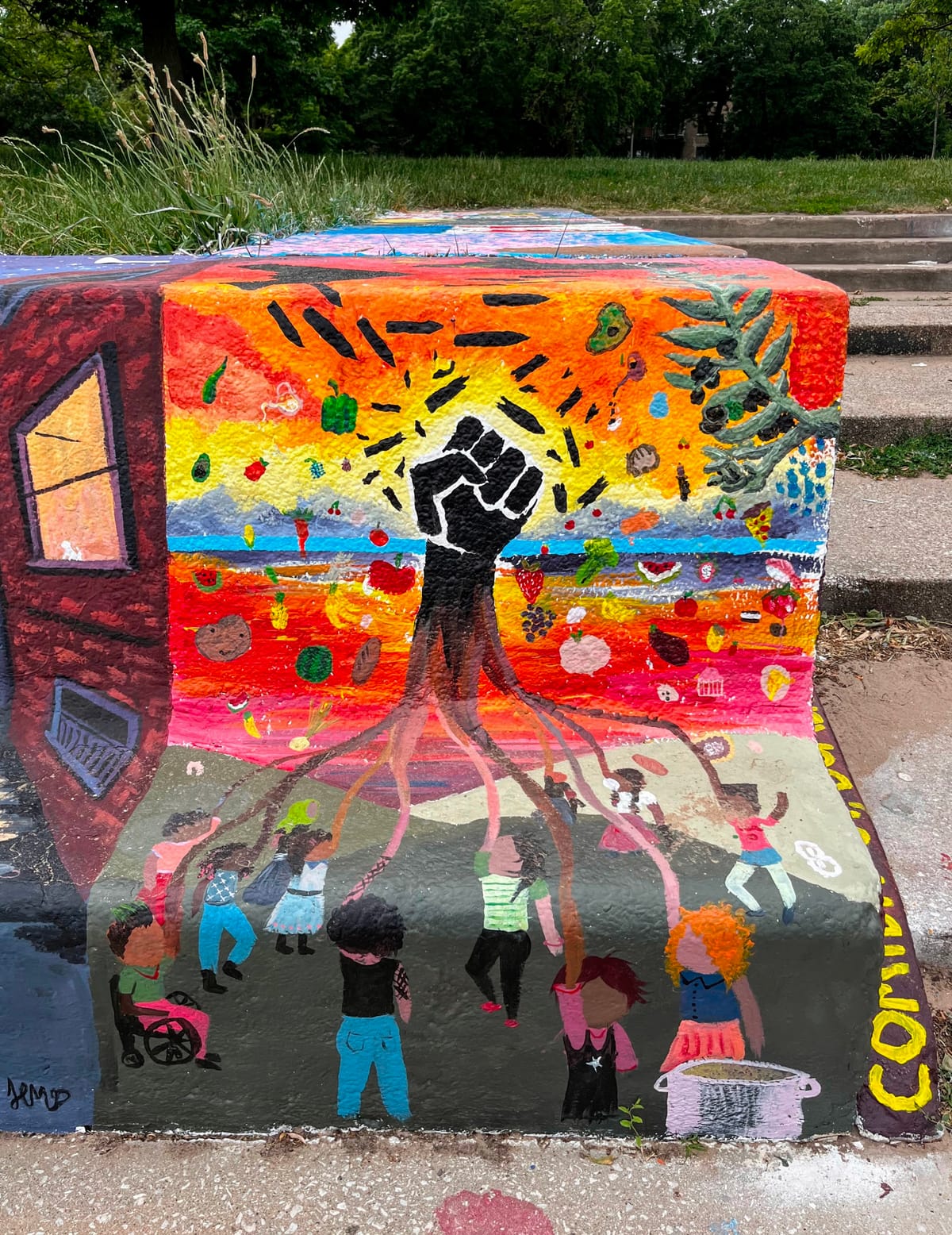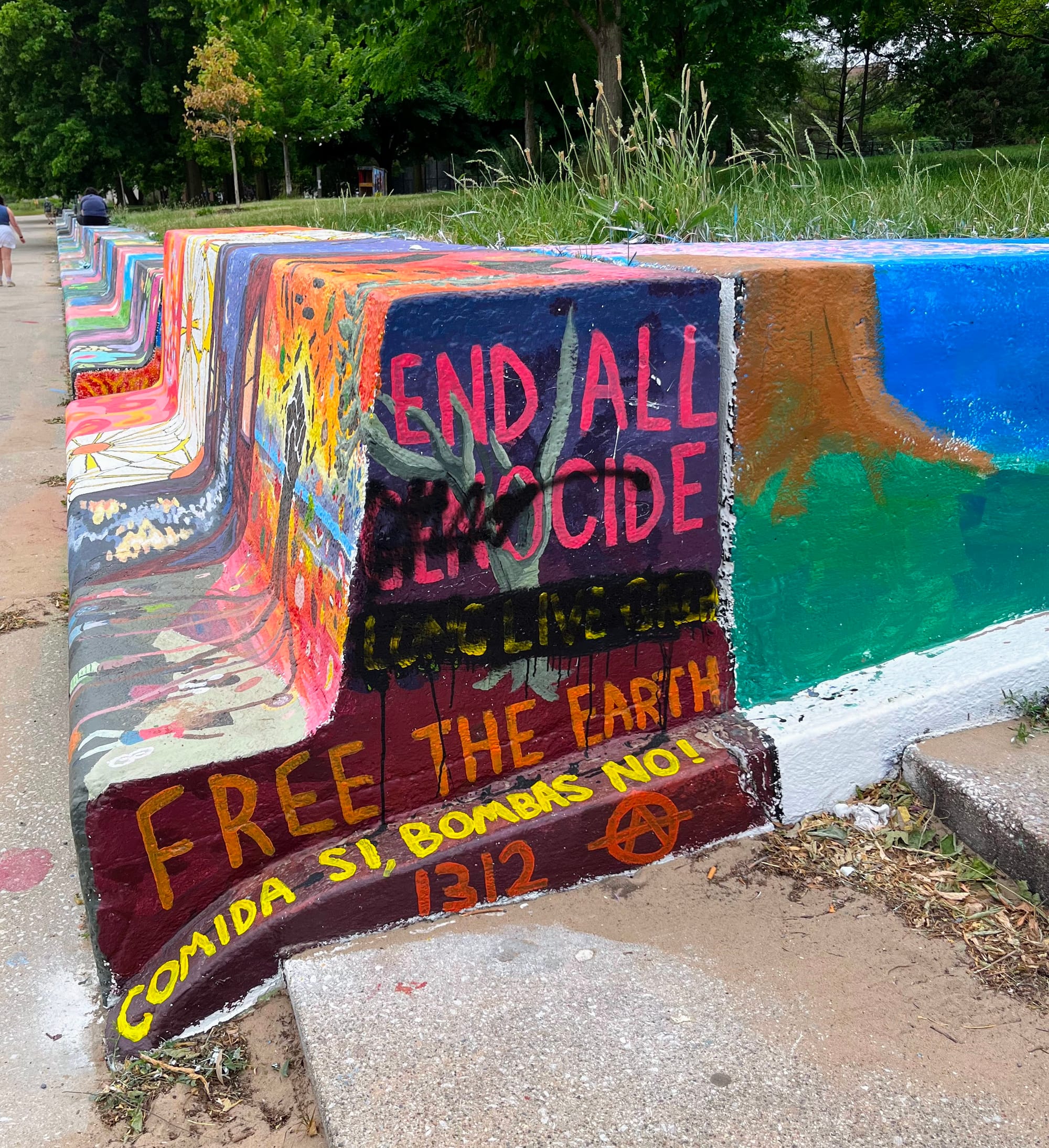Must-Reads and Some Thoughts on the Work of Solidarity
From Big Oil’s plan to criminalize pipeline protests to cults, labor news, and threats against reproductive justice organizers, here are some of the most important stories I’ve read this week.

Your weekly list of must-reads is here. But first, there’s a new episode of Movement Memos that I want to share with you. This week, I talked with Blood In The Machine author Brian Merchant about what today's workers can learn from the machine breakers of the 19th century and why tech CEOs love dystopias.
"The Luddites were incredibly educated as to the harms of technology,” Brian explained. “They were technologists themselves. They used this stuff in their homes and in their workshops every day. They were very skilled technologists. So they understood exactly how new developments in machinery would affect the workplace, their industry, and their identities. So the Luddites fought back in this intensely organized and deliberate and tactical manner."
If you need a transcript, you can find that here.
Must-Reads
From Big Oil’s plan to criminalize pipeline protests to cults, labor news, and threats against reproductive justice organizers, here are some of the most important stories I’ve read this week.
Big Oil’s Plan To Criminalize Pipeline Protests by Emily Sanders. “The federal penalty for damaging or destroying interstate pipelines is already a felony charge mandating up to 20 years in prison. But the industry’s proposed additions, described in executives’ congressional testimony and policy briefs posted online, would widen the definition of and punishment for “attacks” on pipelines using vague language that could implicate a far broader set of activities used to protest fossil fuel infrastructure.”
AI is exhausting the power grid. Tech firms are seeking a miracle solution. by Evan Halper and Caroline O'Donovan. “'Coal plants are being reinvigorated because of the AI boom,' Kneese said. 'This should be alarming to anyone who cares about the environment.'”
On Cults by Talia Lavin. “Part of looking at cults honestly is realizing that with the exception of a very few innate skeptics, most of us, at some point in our lives, would be susceptible to such a pitch, if it harmonized with our greater values; if it came at a point where we felt low, and frightened, and individuality felt like more of a burden than a sacred thing to uphold.”
The Most Common Essential Jobs in the US Don’t Pay a Living Wage by Mike Ludwig. “‘The 2023 median salaries listed for the top three most common jobs — and many others — do not offer a living wage in any state across the country.”
Paul Gottfried’s Career Smuggling Fascist Politics into the Academic Canon by Shane Burley. “With a figure as important to the American far-right as Gottfried, what excuse is there to lend him the veneer of academic legitimacy and to suggest his views have merit in scholarship?”
SCOTUS decision in Starbucks case will impact the labor movement by Alexandra Martinez. “The U.S. Supreme Court ruled June 13 in favor of the Starbucks Corporation in the landmark case Starbucks v. McKinney, a devastating blow to union organizers that narrows the authority of the National Labor Relations Board (NLRB) to seek remedies for terminated union activists.”
‘They want us to be scared’: Protesters target organizers for abortion ballot measure in Arkansas by Barbara Rodriguez and Grace Panetta. “One woman said she has been called a murderer at public events. Another said she was followed by a protester from location to location. A third stopped posting publicly about her real-time whereabouts.”
Climate Refugees Are Occupying Abandoned Buildings in Southern Brazil by Michael Fox. “‘This is our salvation,’ flood victim Anselmo Gomes says of the occupation. Before the rains, he delivered online orders on his motorcycle. His bike, however, has now been underwater for more than a month. ‘This is the chance of a new beginning.’”
Newsletter Recommendation
I highly recommend checking out this edition of Mariame Kaba’s newsletter about why we still need conferences.
Convenings have been deeply important to my own growth as an activist and an organizer, and I will be attending one myself next week. The event is a week-long land-based solidarity gathering. You will be hearing more about that soon.
Final Thoughts
On Monday, I tried to attend a virtual book launch for Safety Through Solidarity: A Radical Guide to Fighting Antisemitism by Ben Lorber and my friend Shane Burley. I say “tried” because the planned discussion never occurred. As Shane and Ben were about to offer their opening remarks, a group of fascists launched a grotesque Zoom bombing of the event. As Shane explained on Facebook, “Twenty or so neo-Nazi accounts who took over [the event], posted porn, racial slurs and quotes from Mein Khampf and threats about killing Jews until we had to shut it down to keep folks safe.” Shane apologized to attendees on Facebook, saying, “Really sorry for folks that had to witness that,” noting that it was “the first time I've had fash get through security locks and do that.” Shane also acknowledged that added security would be needed “when/if we do an online event again.”
I was excited to participate in this conversation, as I will be out of town when Ben and Shane hold their Chicago book launch on Wednesday, June 26. Since I refuse to allow fascists to derail my efforts to discuss an important text with its authors, you can look forward to hearing from Shane and Ben in an upcoming episode of Movement Memos.
I am saving my thoughts about the book for that episode, but in the meantime, if you would like to understand why this book is so timely and necessary, I recommend checking out this review by Paul Messersmith-Glavin. As Paul writes: “Burley and Lorber embody an intersectional approach to fighting antisemitism, seeing it as a form of oppression alongside others preventing us from all being truly free. They expertly weave together the struggle against anti-Blackness, Islamophobia and transphobia into the project of collectively working for liberation.”
If you would like to spite the fascists and join me in supporting this book, I recommend ordering a copy today. You can also support Shane’s work via his Patreon, which is an excellent resource. (Most recently, Shane published A Deeper Dive into Substack's Fascism Problem, which offers a thorough breakdown of why some of us have fled Substack. It’s definitely worth reading.)
Amid bipartisan efforts to enshrine the conflation between antisemitism and anti-Zionism in law, honest conversations about the meaning of antisemitism are deeply important. Confusion and bad faith arguments on the subject are causing tremendous harm. Activists are being called antisemitic for demanding an end to an ongoing genocide. Some on the left are responding to those mischaracterizations by dismissing the threat of antisemitism as a non-issue – an error that could prove catastrophic amid the continued rise of right-wing movements and the ascent of global fascism.
The attack on the Safety Through Solidarity book launch occurred the same week that some Palestine solidarity murals in my area were defaced. Over 150 small murals were painted in the Rogers Park neighborhood of Chicago last weekend as part of an event called Artists of the Wall. During the annual event, artists, organizations, and families create imagery on a long bench structure along Lake Michigan. The offerings are always diverse and beautiful. While some murals have been defaced in the past, I was surprised by the speed at which pro-Palestine paintings were attacked this week. Five out of seven murals that expressed solidarity with Palestinians were defaced. The other 145 murals created during Artists of the Wall were unharmed. One painting, contributed by our area’s Food Not Bombs chapter, included the words, “end all genocide” and “long live Gaza.” Those words were smeared with black paint this week. Sometime before the murals were defaced, I saw someone on Facebook claim that the Food Not Bombs mural was antisemitic. The idea that a call to end all genocide or a call for Gaza to live, could be construed as antisemitic is deeply disturbing. Such misguided positions drive home the need for thoughtful discussions about what constitutes antisemitism and how violence against Jewish people can actually be fought.

I am happy to say that neighborhood activists are already making plans to repair the defaced murals and continue to care for them this summer. I am heartened by our community’s commitment to restoring and defending these paintings. Solidarity, after all, is an ongoing project. It is messy and imperfect because we are messy and imperfect. But we keep at it because ultimately, we know that we are each other’s best hope.
Much love,
Kelly




